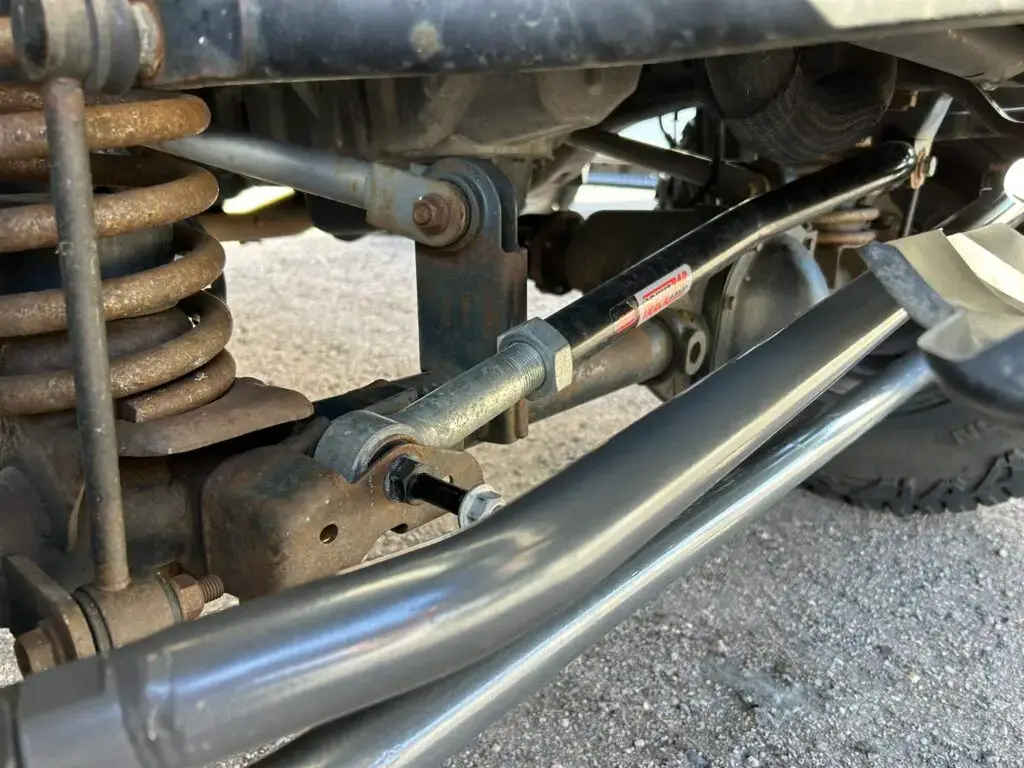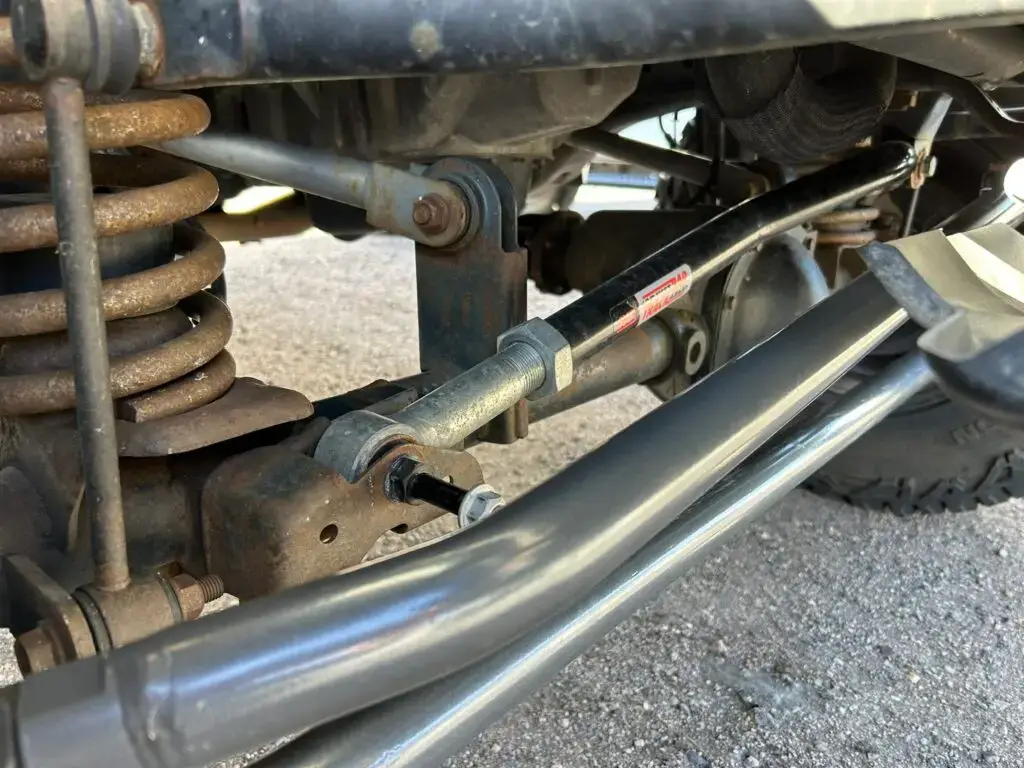Share:
Explore More Topics
Steering Stabilizer 101

Everything Jeep Owners Need to Know
A steering stabilizer is a small shock absorber attached between your Jeep’s axle and steering linkage. It reduces vibrations and helps maintain control—especially over rough terrain. While not a magical cure for major steering issues, it can significantly improve your driving experience.

What Exactly Is a Steering Stabilizer?
Since the earliest CJ models, Jeeps have come with a steering stabilizer from the factory. Think of it as a sideways shock absorber dedicated to your steering system. One end mounts to the axle housing, and the other connects to the steering linkage.
Key Role:
-
Dampen Steering Vibrations: Helps absorb shocks from potholes, rocks, and off-road obstacles.
-
Reduce Driver Fatigue: Less steering wheel “kickback” means a more comfortable, controlled ride.
-
Improve Handling: Adds a bit of steering wheel resistance, helping prevent over-steering during sudden maneuvers.
Do You Really Need a Steering Stabilizer?
-
For Stock Jeeps: The factory unit typically works fine, especially if you stick with OEM tire sizes and minimal modifications. Some Jeep owners never feel the need to upgrade.
-
For Modified Jeeps: Larger tires, lift kits, and added weight (like heavy bumpers or a winch) can increase steering stress. Upgrading to a heavier-duty stabilizer may help reduce excessive vibrations and improve overall handling.
Off-Road Performance: Why It Matters
Off-road conditions can amplify every jolt in your steering system. A steering stabilizer plays a crucial role here:
-
Controls Wheel Feedback: Rough trails send sudden, sharp motions to your steering wheel. A stabilizer reduces these jolts, offering smoother handling.
-
Manages Larger Tires: Bigger, heavier tires place extra strain on steering components; a robust stabilizer can help handle that load.
-
Enhances Confidence: Taming steering vibration off-road means you can navigate challenging terrain with less effort and more precision.
Does a Steering Stabilizer Fix Death Wobble?
Short Answer: No. A steering stabilizer only masks symptoms; it doesn’t resolve the actual cause.
-
Death wobble typically stems from worn or improperly installed suspension components—like ball joints, tie rods, or track bars—and misalignment.
-
Installing or upgrading a steering stabilizer won’t fix these underlying issues. Always inspect and repair faulty parts first.
Can You Drive Without One?
Yes, you can drive without a steering stabilizer—your Jeep’s steering system will still function. However, you may experience:
-
Increased Vibrations: More feedback from bumps or uneven roads.
-
Reduced Control: Quick maneuvers may feel less stable, especially if you have larger tires or suspension modifications.
-
Greater Driver Fatigue: Constant steering wheel jostling can make longer drives uncomfortable.
Frequently Asked Questions (FAQs)
Q: Will a new steering stabilizer cure steering shakes or shimmies?
A: It can mask minor vibrations, but it won’t fix the underlying problem—often worn ball joints, tie rods, or improper alignment.
Q: Do I need a dual steering stabilizer?
A: A dual setup can help heavily modified Jeeps running oversized tires. For moderate lifts or near-stock tires, a single upgraded stabilizer is generally sufficient.
Q: How long does a steering stabilizer last?
A: Lifespan varies. Mild, on-road driving can see a factory stabilizer last for years. Off-road adventures and bigger tires may wear it out sooner.
Q: Is installation difficult?
A: Most stabilizers are simple to install and require only basic tools. Even novice DIYers can typically complete the job in a few hours.
Q: What if my Jeep still feels loose after upgrading?
A: A steering stabilizer alone won’t correct serious issues. If handling problems persist, inspect and replace worn steering or suspension components.
